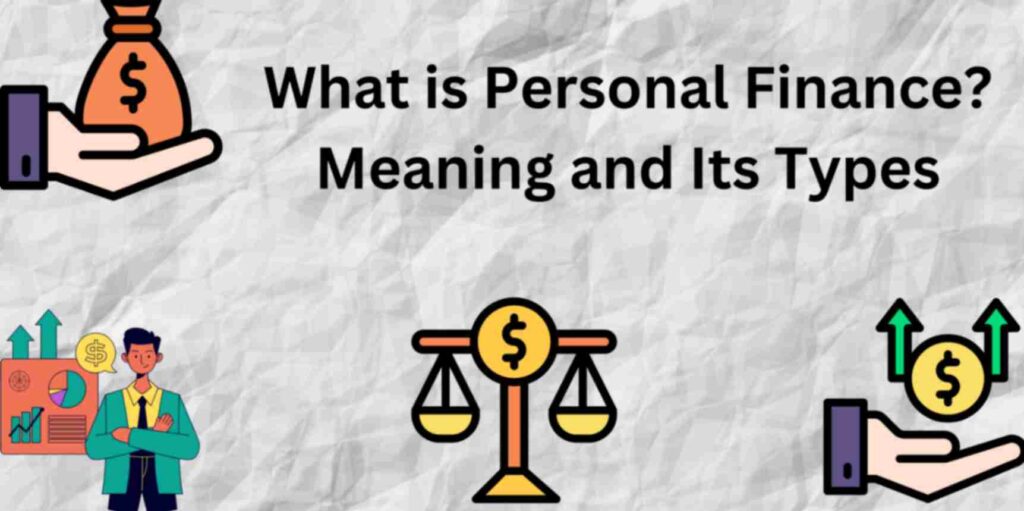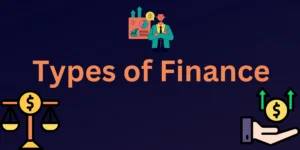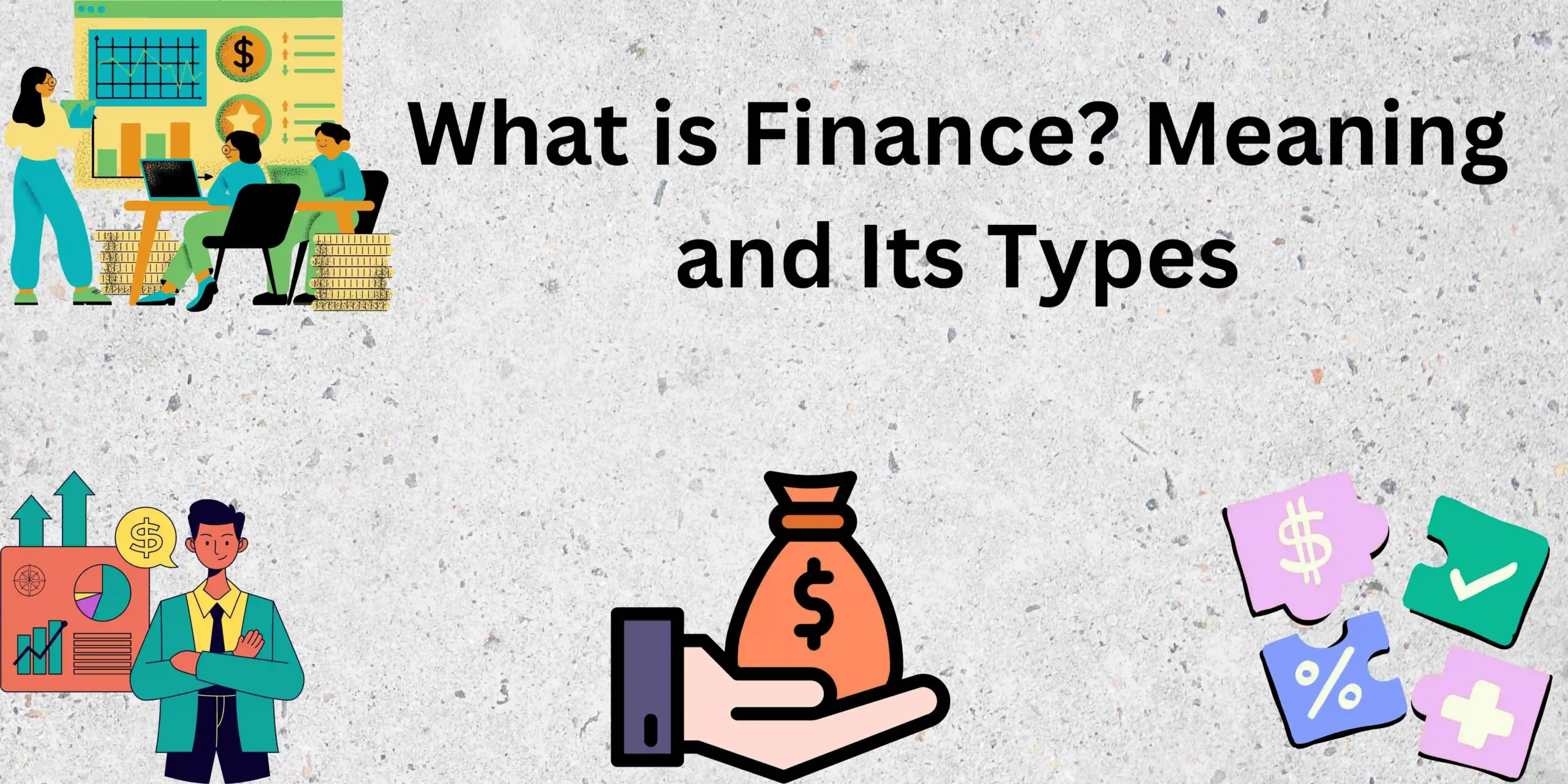What is Finance is a question that everyone asks about money. Well, Finance is a broad and crucial concept that governs how individuals, businesses, and governments manage money, investments, and financial resources. In our rapidly evolving world, having a good grasp of finance is indispensable for making informed decisions about saving, spending, and investing. Within the realm of finance, personal finance is a pivotal element that directly affects the financial well-being of individuals. This article will break down the essential concepts of finance, personal finance, different types of finance, and explore whether personal finance plays a role in enhancing financial literacy.
What is Finance?
What is Finance referring to the management of money, assets, and investments. It encompasses the processes of borrowing, lending, investing, budgeting, and saving. Finance is integral to the smooth functioning of economies, as it ensures that resources are efficiently allocated and utilized. The term “finance” can cover various domains such as public finance, corporate finance, and personal finance.
Finance also plays a crucial role in supporting businesses, ensuring governments can provide public services, and helping individuals plan for future expenses. The three core functions of finance include:
- Investment: Allocating resources to projects or assets that are expected to generate returns over time.
- Financing: Securing the funds necessary to undertake investments or expenditures.
- Risk Management: Identifying, analyzing, and mitigating risks that could impact financial stability or profitability.
In essence, finance is about making decisions that maximize value, whether it’s for a corporation, a government, or an individual.

What is Personal Finance?
Personal finance refers to the management of an individual’s financial activities and decisions. This can include budgeting, saving, investing, managing debt, retirement planning, and navigating tax obligations. In other words, personal finance is all about how people manage their income, expenses, savings, and investments to achieve their financial goals.
Personal finance is crucial because it deals with day-to-day monetary decisions that affect one’s future financial stability and security. Understanding personal finance helps individuals prepare for unexpected life events, such as job loss, medical emergencies, or economic downturns, and ensures that they can achieve long-term financial goals like buying a home, funding education, or securing a comfortable retirement.
Key Aspects of Personal Finance Include:
- Budgeting: Creating a plan to track income and expenses.
- Saving: Setting aside a portion of income for future needs.
- Investing: Allocating money into assets such as stocks, bonds, or real estate to generate returns.
- Debt Management: Controlling and minimizing debts, such as credit cards or student loans.
- Insurance: Protecting against unforeseen financial losses.
- Retirement Planning: Building a financial cushion to ensure financial independence in later years.
By mastering personal finance, individuals can manage their money wisely, avoid unnecessary debt, and achieve financial independence.

Types of Finance
Finance can broadly be categorized into three primary types:
1. Personal Finance
As discussed earlier, personal finance deals with managing an individual’s finances. It focuses on budgeting, savings, investments, and planning for retirement or other financial goals. In personal finance, people manage their money to meet both short-term and long-term objectives. Good personal financial management ensures that an individual has enough money to cover daily expenses, emergencies, and future needs.
What is Finance – Key Aspects:
- Income Management: Managing wages, salaries, or other sources of income.
- Expense Tracking: Monitoring daily, monthly, and annual expenses.
- Saving and Investing: Ensuring that there is enough for both immediate and future needs.
- Debt Handling: Controlling and minimizing liabilities like credit card debt, mortgages, and loans.
- Insurance: Ensuring that risks such as illness, accidents, or property damage are covered.
2. Corporate Finance
Corporate finance deals with the financial activities and decisions of companies and businesses. It involves raising capital, investing in assets, and managing debt to maximize shareholder value. Corporate finance professionals work to ensure that businesses have the funds they need to operate and grow, while also balancing risk and return.
What is Finance – Key Aspects:
- Capital Structure: Determining how to finance company operations and growth, either through debt, equity, or a combination of both.
- Investment Decisions: Deciding on which projects or assets to invest in to maximize returns.
- Financial Planning and Forecasting: Creating financial plans to ensure that the company can achieve its business objectives.
- Risk Management: Identifying and mitigating financial risks that may threaten the company’s profitability or solvency.
Corporate finance is critical for ensuring that businesses remain competitive, profitable, and sustainable over the long term.
3. Public Finance
Public finance refers to the financial management of government activities. It includes taxation, government expenditures, public debt, and budgeting. Public finance ensures that governments have the resources they need to provide public services such as healthcare, education, and infrastructure, while also maintaining economic stability and promoting growth.
What is Finance – Key Aspects:
- Taxation: Generating revenue for the government through taxes.
- Government Spending: Allocating funds to public services, welfare programs, and infrastructure projects.
- Public Debt: Managing government borrowing and debt repayments.
- Budgeting: Creating and maintaining a fiscal plan to ensure that government revenues and expenditures are balanced.
Public finance is vital for the overall well-being of society, as it enables governments to provide essential services and maintain stability in the economy.
You Might also Like: 5 Basic Principles of Personal Finance
Is Personal Finance Good for Financial Literacy?
Financial Literacy refers to the ability to understand and apply various financial skills, such as budgeting, investing, managing debt, and planning for retirement. In today’s fast-paced world, financial literacy is more important than ever, as individuals face increasingly complex financial decisions.
Personal finance is not only good for financial literacy; it is essential for it. Managing personal finances effectively builds a strong foundation for financial literacy by teaching individuals how to make informed financial decisions. Here’s why personal finance contributes to better financial literacy:
1. Understanding Income and Expenses
Through personal finance, individuals learn to track their income and expenses. This understanding is essential for creating a budget and ensuring that they live within their means. It promotes awareness of how money flows in and out of their life, helping them make informed spending and saving decisions.
2. Budgeting Skills
One of the first steps in personal finance is budgeting. By creating a budget, individuals become more aware of their spending patterns and can allocate money to different areas of their life. This awareness leads to better decision-making and promotes disciplined financial habits.
3. Debt Management
Debt is a significant part of many people’s lives, whether it’s a mortgage, student loans, or credit card debt. Personal finance teaches individuals how to manage and minimize debt, make timely payments, and avoid the negative consequences of bad credit. This, in turn, strengthens financial literacy, as individuals learn about interest rates, loan terms, and credit scores.
4. Saving and Investing
Personal finance emphasizes the importance of saving for emergencies and future goals. It also introduces individuals to the basics of investing, helping them understand different investment vehicles like stocks, bonds, and real estate. Through personal finance education, individuals can make more informed choices about how to grow their wealth over time, enhancing their overall financial literacy.
5. Planning for the Future
Personal finance helps individuals think about long-term financial goals, such as retirement, buying a home, or funding a child’s education. By learning to plan for the future, individuals develop a deeper understanding of the importance of financial security and stability, further enhancing their financial literacy.
6. Risk Management and Insurance
A key component of personal finance is managing risks through insurance and other protective measures. Understanding how to protect oneself from financial loss, whether through health insurance, life insurance, or other types of coverage, is an essential part of financial literacy. Personal finance teaches individuals how to identify risks and take the appropriate steps to mitigate them.
What is Finance: Conclusion
Finance is a crucial aspect of everyday life, whether on an individual, corporate, or governmental level. Personal finance, in particular, plays a central role in managing day-to-day financial decisions and preparing for future goals. By practicing good personal finance habits, individuals not only improve their own financial well-being but also strengthen their financial literacy. In a world where financial decisions are becoming more complex, personal finance serves as the foundation for making informed, sound decisions that lead to a more secure financial future.
Understanding finance, mastering personal finance, and cultivating financial literacy are the cornerstones of achieving financial independence and stability.
What is Finance: FAQ
Q1: What is the primary goal of finance?
- The primary goal of finance is to manage money efficiently to maximize wealth and ensure financial stability.
Q2: What are the main areas of personal finance?
- The main areas of personal finance include budgeting, saving, investing, insurance, and retirement planning.
Q3: How does corporate finance differ from personal finance?
- Corporate finance focuses on managing a corporation’s financial activities, while personal finance deals with an individual’s financial management.
Q4: What is public finance?
- Public finance involves managing the financial activities of governments and public institutions, including budgeting, taxation, and public expenditures.
Q5: Why is finance important?
- Finance is crucial because it helps individuals, businesses, and governments manage their resources efficiently, make informed decisions, and achieve financial goals.
Q6: What is finance?
Finance is the management of large amounts of money, especially by governments or large companies. It involves the creation, oversight, and study of money, investments, and other financial instruments.







